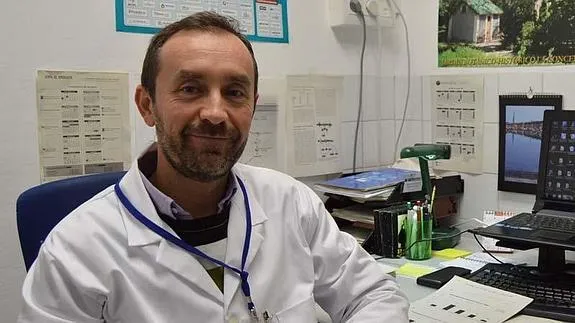Three years ago, Francisco Javier Bermúdez's team jumped to the headlines of the scientific press for a key finding in the fight against diabetes.The so -called GPR5 was the name of the receiver present in the pancreas and whose stimulation increases blood insulin levels, according to Bermúdez and its collaborators, which opened a new door to the therapeutic treatments of type 2 diabetes, since, since, since, since,By activating said receiver, the pancreas releases insulin, diminating blood glucose levels significantly.
Now, this Malaga investigator at the Carlos Ha has continues to delve into the secrets of that GPR55, the protein discovered fifteen years ago in the brain, spleen and adipose tissue, but of which until now it was unknown to play such a relevant role in the systemendocrine.
"We have promising results, but we must be prudent," says this doctor in biology from the University of Malaga, which focuses its current studies on how the regulation of the GPR5 of the pancreatic islets affects the functioning of this organ of diabetic people.
"The objective is to stop the deterioration of the pancreas, and that these people have the best possible quality of life, because it is a very important organ because of the hormones it produces, not only the insulin," summarizes Bermúdez, which is in charge ofAn Ibima group of which a total of four researchers are part.
His work has obtained "promising" results in animal models.
The line of research in which they are immersed is related to the latest discoveries of the specialty, which reveal that type 2 diabetes (the one that arises in adults) has more similarities than was believed with that of type 1 (autoimmune diseasethat appears more in young people), due to the presence of antibodies and for the inflammation of the pancreas, an organ that predicts that "we have a lot to discover": "The regulation of pancreatic function is enormously complex."
The work of your team is based on analyzing how the pancreas behaves blocking or stimulating the receiver, always looking to reduce inflammation. For that, they develop 'in vitro' experiments with living tissue or with diabetic or prediabetic mice, to which it is administeredThe drugs.Bermúdez is cautious when it comes to revealing the results, but also optimistic."You have to wait to have solid data before moving to clinical trials," he says.
It also analyzes the anti -inflammatory properties of olive oil.
On the other hand, its Ibima group carries out another line of research related to olive oil and its anti -inflammatory properties.It is a study in which they are immersed through the Carlos III Health Institute, and that part of other works on the Mediterranean diet and its health effects.
"These are studies that show that people who follow these types of diets have a better metabolic profile in everything," explains this biologist, which also collaborates with other research from Alicante, Santiago de Compostela or Bordeaux.In the French city, it was already formed for two years in Neuroendocrinology.

